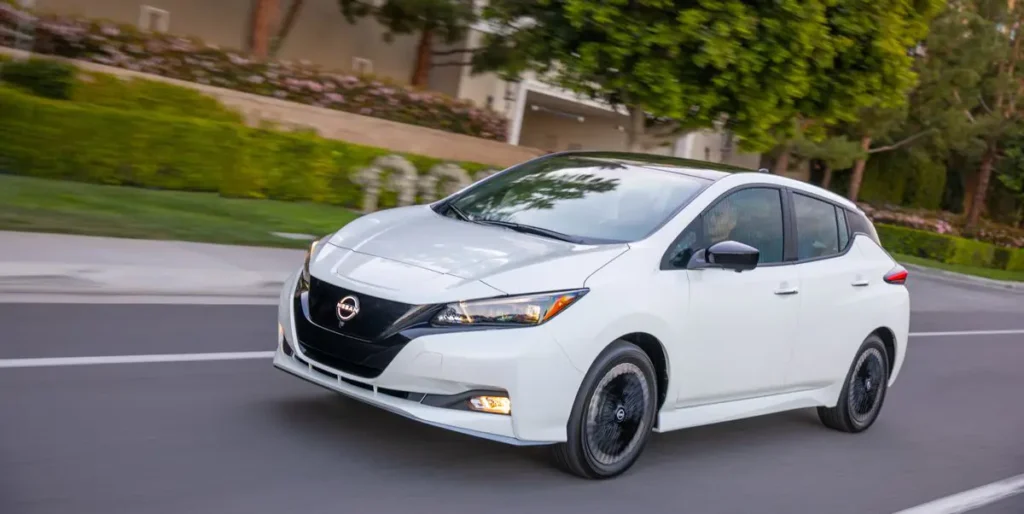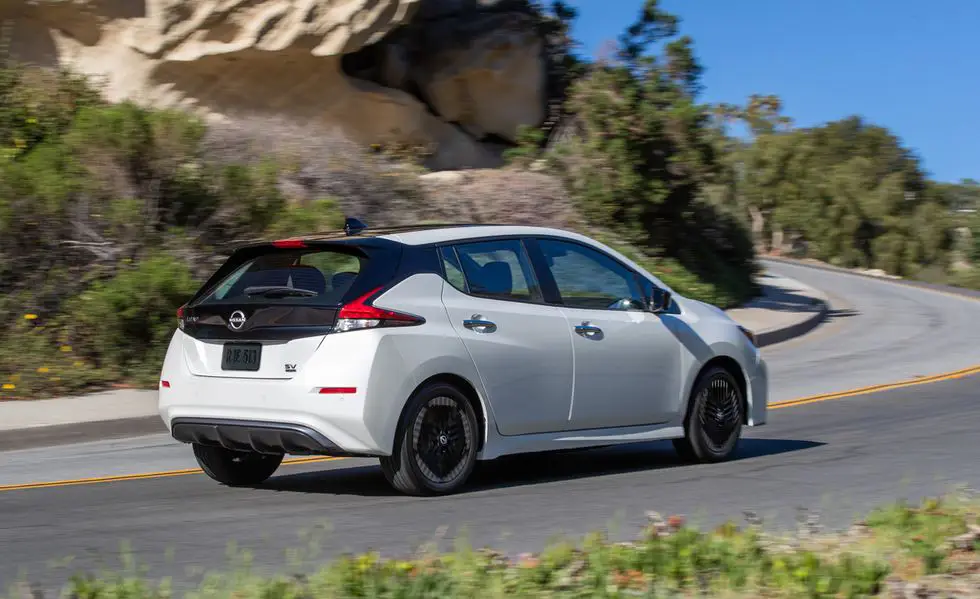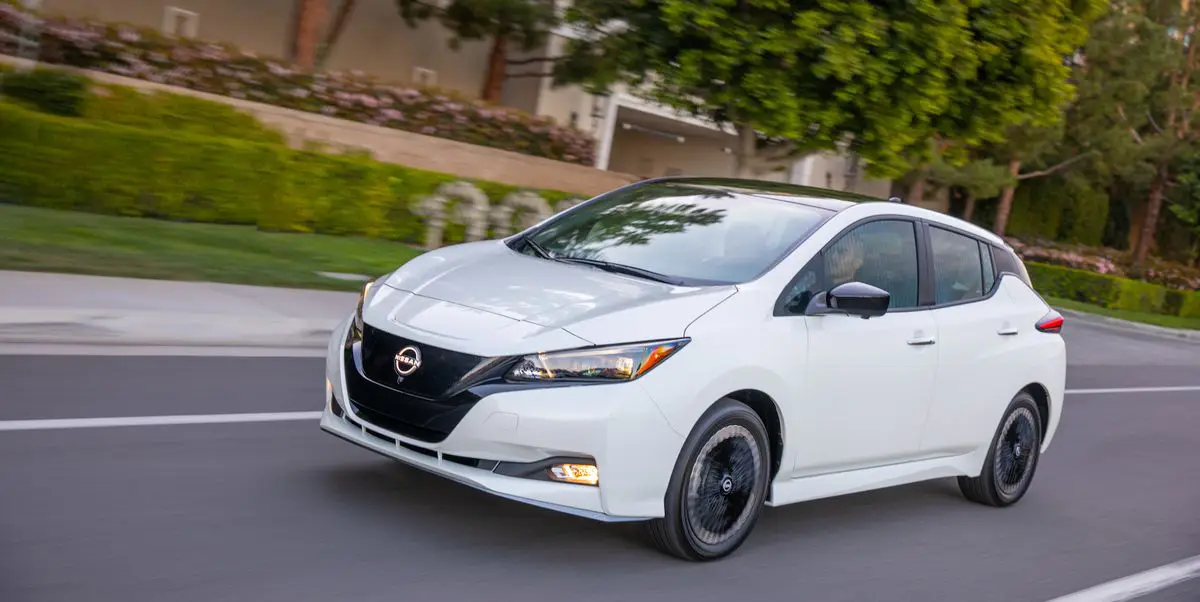
- The base price of the 2024 Nissan Leaf EV is $29,280, however with the federal EV tax credit available, that amount decreases to under $26,000.
- Nissan today announced that the Leaf has regained eligibility for the partial $3750 incentive, as its battery components meet the government’s requirements.
- This announcement further solidifies the Leaf’s already-cheap status as the least expensive new electric vehicle sold in the United States, surpassing even the $32K Mini Cooper SE.
As of right now, the sole new electric car available in the United States is priced around $30,000. The 2024 Nissan Leaf, with a starting price of $29,280, takes first place. Nissan today revealed that the Leaf is once again qualified for the partial $3750 federal EV tax credit, meaning that the little electric hatchback may now be purchased for less than $26,000.
Eligible Leafs
There’s a catch, though: according to 2024 Nissan Leaf EV, the Leaf model had to have been manufactured in 2024 and purchased on or before March 6 to qualify. Naturally, to receive the discount, the buyer must also fulfill all requirements outlined in the Inflation Reduction Act (we’ve produced an overview to help you better understand how the EV tax credits operate).

The 2024 Nissan Leaf EV was previously qualified for half of the $7500 federal incentive, but that offer expired on December 31. As a result, the business had to confirm again that the battery components it uses comply with IRA regulations. This has now been done. Only ten electric 2024 models are now eligible for a federal credit in the United States, and only seven of those can receive the entire $7,500. The Leaf is now one among those models.
Price vs. Other Cheap EVs
A calculator will show you that a new 2024 Nissan Leaf Ev can cost as little as $25,530 once the federal incentive is applied. Compared to a 2024 Mini Cooper SE, which has a starting price of $31,895 and isn’t eligible for federal tax credits, that is significantly less expensive.
There isn’t much competition for the Leaf now that the Chevy Bolt EV and EUV have been discontinued (unsold 2023 models are still eligible for the $7500 credit). The next cheapest new EV after the Mini is the 2024 Hyundai Kona Electric, which starts at $34,050 but isn’t eligible for federal incentives. Next is the new Fiat 500e, which will retail for $34,095 when it goes on sale in the coming months. It’s constructed in Italy, but there’s no information on whether it qualifies for tax credits. Regarding the Tesla Model 3, which has a starting price of $41K, the $7500 credit is presently only available for the far more expensive Performance model ($55K est.).

